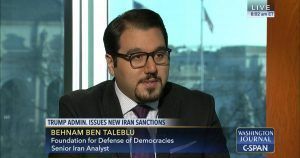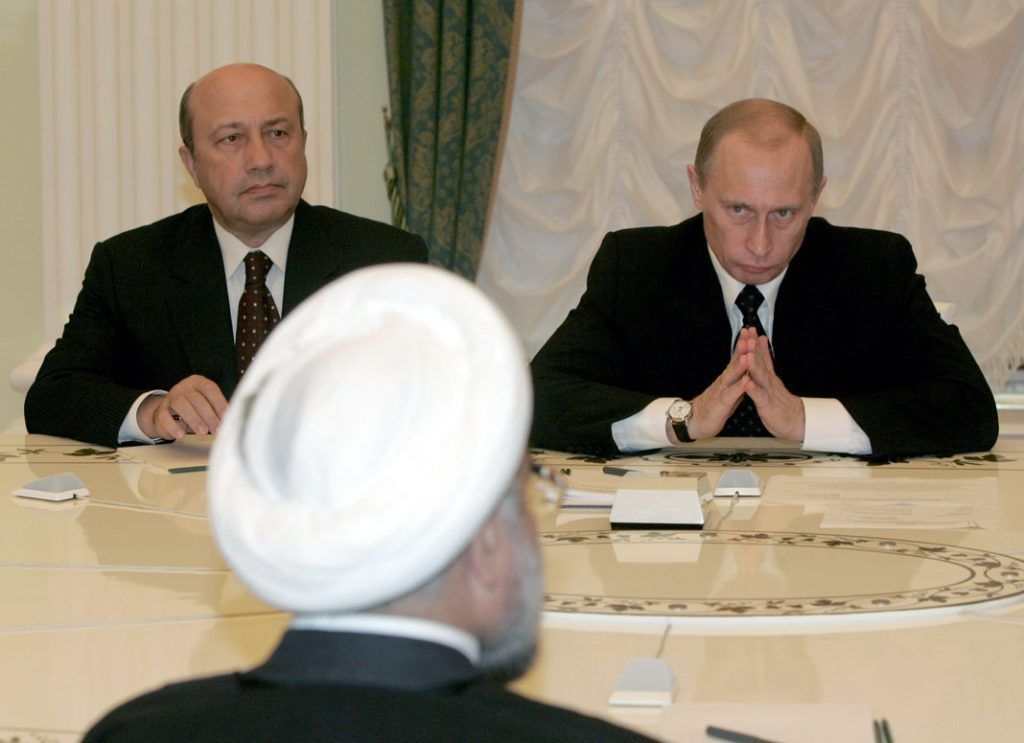March 27, 2017
ِBy Peyman Pejman
President Hassan Rouhani’s visit to Moscow this week is seen by observers as much for what is on the agenda as it is for items not officially included on the list of topics to be discussed.
While Rouhani and Russian President Vladimir Putin have met a number of times in the past years, this will be the Iranian leader’s first official visit to Moscow.
The formal list of discussion topics released by Moscow and Tehran news media organizations might seem somewhat lackluster for the first official meeting between the two leaders.
Iranian president’s deputy chief of staff for communications and information, Parviz Esmaeili, told Tehran-based reporters Rouhani and Putin will discuss “leading bilateral, regional and international issues,” noting that “Iranian and Russian officials would sign agreements to bolster cooperation in legal and judicial sectors, roads and urban development, technology and communications, energy and sports,” according to a Press TV report.
In Moscow, the list released by the Kremlin is even less detailed.

“The public announcements about this visit have been very limited and few details have been announced about what the leaders will discuss. What we know is [that] they plan to discuss joint projects in energy and transportation,” said Petr Topychkanov, an analyst with Carnegie Moscow Center, an affiliate of the Carnegie Endowment for International Peace.
Rouhani, who will be accompanied by a large trade delegation, is expected to sign a number of agreements, possibly one on the years-dormant idea of creating a sea-rail-land North South Transport Corridor (NSTC), which would link Iran, India, Russia, and Azerbaijan to various European destinations.
India recently signed a number of bilateral and trilateral agreements with Iran and Afghanistan to expand and operate two berths in Iran’s Chahbahar port and to upgrade Afghan infrastructure so Afghanistan can ship its goods through Pakistan, all in the hope of rejuvenating the NSTC.
What’s not on the official agenda between Putin and Rouhani is more interesting to many political observers and policymakers, who say the meeting is important for both Iran and Russia –but for different reasons.
For Iran, Syria remains a top regional priority.

“[The meeting] follows the diplomatic footwork that Iran, Turkey and Russia started in December and some of the peripheral high-level talks we saw in January. Rouhani wants to have Russian support for whatever Iranian activity goes on in Syria so it would look like Iran is not the only one behind Assad,” said Behnam Taleblu, Senior Iran Analyst at the Foundation for Defense of Democracies think-tank in Washington, DC.
“Iran wants to make sure that, should Russia decide to negotiate over the fate of Syria, Iranian interests are taken into account,” he added.
Topychkanov says Russia sees the “Syria case” differently, and is willing to compromise the difference with Iran but it is not clear what the final deal might be.
“For Russia, and it has been said many times by high level officials including Foreign Minister Sergey Lavrov, President (Bashar) Assad and his survivability as president, as a political figure, is not the most important thing and that Russia is ready to discuss transition from the Assad regime control to something new, inclusive of different groups and forces, even some of the armed opposition to the Assad regime, so Russian regime is very flexible,” said Topychkanov.
“For Iran, these arguments are not so relevant. For Iran it is about its own dominance of the region. It is also about competition with Arab countries over influence in the region. For Iran, it may be much more important for President Assad to remain the leader in Syria than for Russia,” he added.
President Putin, on the other hand, has both politics and economics in mind when he sits across from President Rouhani.
Taleblu and Topychkanov both agree that Putin – along with China – are keenly waiting for 2020 when the United Nations arms embargo on the sale of certain nuclear-and-military use technology and equipment to Iran ends. According to Taleblu, Russia also remains very interested in re-visiting the idea of building a new nuclear plant in Bushehr.
Topychkanov says while both sides are interested in advancing military cooperation, neither side wants to make hasty announcements.
“It would be a very important issue but what was interesting to me was that in the initial announcements about the visit, there was no mention of any military technology cooperation. No mention,” he said.
“It can indicate that even if they plan to put [this] on their agenda, they don’t have documents ready on the table during this visit. Iran is still under sanctions and there are still limits on supplying military equipment so we are still facing obstacles in this arena. But definitely Russia would be interested.” Topychkanov added.
Putin might also want to use his meeting with Rouhani for Moscow’s broader strategic reasons.
“Russia wants to show that we have special relations with Iran, that Russia is the best option as a mediator between Iran, Europe, and the United States. Russia is trying to use Iran as an instrument to make its own status and position in the Western eyes [in the aftermath] of [Russia’s invasion of] Crimea,” Topychkanov said.
“To be honest, it seems to me that, unfortunately for those Russian officials who believe in that, it will not work because Iran is quite successful in establishing its own contacts and channels and the West is not ready to make its relations with Iran dependent on Moscow,” he added.
Taleblu also agrees that Putin might have such intentions and has a warning for Tehran leaders.
“I have always said that it is a testimony to the shortsightedness of the leaders of the Islamic Republic to work with Russia because as we know from history the country that has taken most territory from Iran over the past half millennia is Russia, the country most hostile to liberal democracy in Iran has been Russia, whether in the imperial Czarist form or under the Soviet Union,” said Taleblu.


